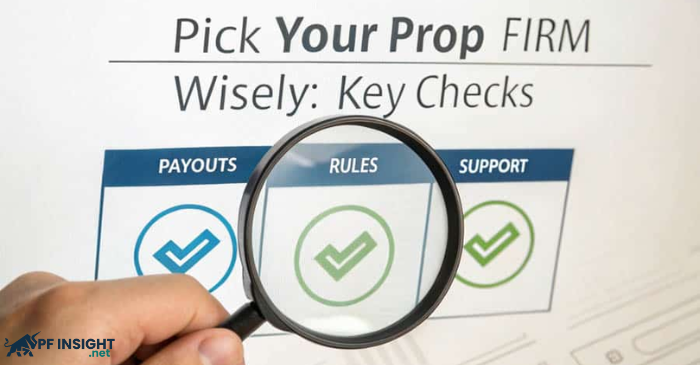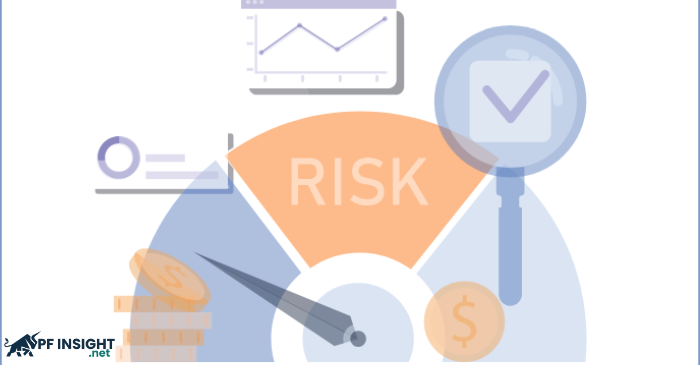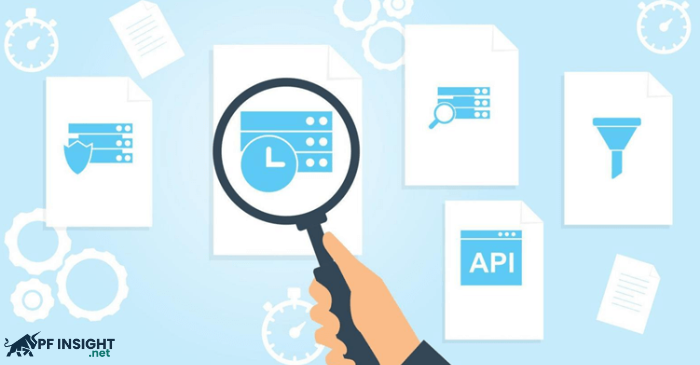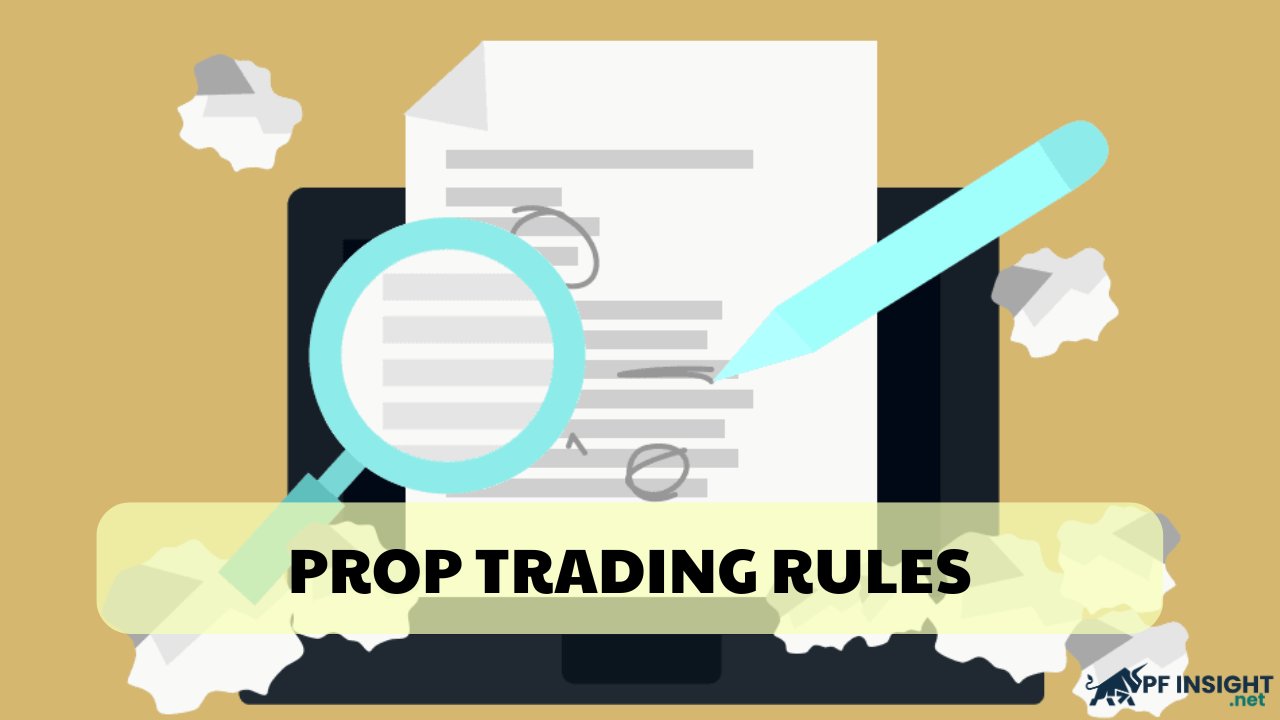Although the proprietary trading market is known for being highly profitable, it still comes with strict rules and limitations that every trader must follow to protect capital and minimize risks for Prop Firms. To trade effectively and maximize profits, it is crucial to fully understand the prop trading rules before joining any funded trading program. In this article, Pfinsight.net summarizes the top prop trading rules every trader must know in 2025 to achieve the best trading results. Let’s dive in!
What is proprietary trading?

Proprietary trading, also known as prop trading, refers to a form of trading in which a trading desk or financial institution buys and sells financial products – such as stocks, bonds, commodities, currencies, and derivatives – using its own capital instead of clients’ funds.
The primary goal of these firms is to generate profits, and they often leverage advanced technology, exclusive market insights, and in – depth research to gain a competitive advantage. The structure and focus of proprietary trading firms can vary widely, but they generally include several key components:
- In-house trading: Instead of executing trades on behalf of clients, traders operate using the firm’s own capital.
- Profit-driven objectives: Prop traders are compensated based on their performance and often receive a share of the profits they generate.
- Strict risk management: Due to the significant risks involved, firms enforce rigorous risk control measures to protect capital and ensure sustainability.
- Advanced trading techniques: Many prop firms employ complex strategies such as high-frequency trading (HFT), algorithmic trading, and market-making to optimize results.
- Access to cutting-edge technology: Prop traders benefit from sophisticated analytical tools, modern trading platforms, and extensive market data to maintain a competitive edge.
Prop trading rules traders must know in 2025

Risk management and capital requirements
Risk management protocols
Among the most critical prop trading rules are strict risk management measures. Traders are typically required to adhere to daily loss limits to avoid catastrophic drawdowns, as well as maximum capital exposure per trade to mitigate potential risks.
Building a disciplined trading culture
Prop firms emphasize long-term success over short-term gains by fostering a disciplined trading mindset. These prop trading rules encourage traders to prioritize sustainable profitability and avoid impulsive decision-making that could jeopardize the company’s capital.
Capital allocation and risk control
Traders are assigned trading capital based on their skill level, track record, and strategies. Experienced traders with proven success may receive larger allocations, while newcomers often start with smaller accounts until they demonstrate consistent profitability. This tiered capital distribution not only minimizes risk but also motivates traders to improve performance and advance in their careers.
Trading guidelines and prop trading rules

Each proprietary trading firm establishes its own internal prop trading rules to regulate trading activities. These guidelines are designed to minimize risk, ensure compliance, and maximize profitability. They typically cover:
- Allowed trading instruments
- Holding periods
- Leverage usage
- Trading hours and execution standards
Some firms restrict leverage or prohibit trading highly volatile assets to safeguard their capital. Additionally, traders are expected to follow a disciplined approach, including:
- Sticking to pre-defined entry and exit strategies
- Conducting thorough market research before placing trades
- Maintaining detailed trading logs for performance review
- By enforcing these prop trading rules, firms aim to cultivate responsibility, accountability, and long-term success among their traders.
Profit sharing and compensation structures
Compensation models are another vital aspect of prop trading rules. Most proprietary firms adopt a profit-sharing scheme where traders receive a percentage of the profits they generate. This percentage varies depending on factors such as:
- The trader’s level of expertise
- Historical performance metrics
- Overall profitability of the firm
For example, an experienced trader with a strong track record can negotiate a higher profit split compared to beginners who are still developing their skills. Some firms also offer base salaries, performance bonuses, or access to premium resources such as proprietary trading tools, research materials, and mentorship programs.
These compensation structures are designed to align traders’ interests with those of the firm while fostering a competitive yet supportive environment.
Legal compliance and regulatory standards
Compliance with financial regulations is a cornerstone of modern prop trading rules. Depending on the jurisdiction, firms may be subject to oversight by different regulatory bodies. For example:
In the United States, prop firms must comply with rules set by the Commodity Futures Trading Commission (CFTC) and the Securities and Exchange Commission (SEC).
These regulations exist to maintain market integrity and protect investors. To ensure compliance, firms implement rigorous internal procedures, including:
- Regular audits and monitoring of trading activities
- Training employees on applicable laws and restrictions
- Prohibiting illegal practices such as insider trading
Non-compliance can lead to severe penalties, including fines and license suspensions. Therefore, adherence to these prop trading rules is essential for both firms and individual traders.
Technology, training, and support
Cutting-edge trading infrastructure
In 2025, technology plays an indispensable role in proprietary trading. Firms invest heavily in advanced trading platforms, real-time data feeds, algorithmic systems, and powerful analytics tools. A robust infrastructure ensures:
- Lightning-fast order execution
- Minimal latency
- Enhanced data security
- Reliable system backups
Traders also gain access to machine learning models and proprietary algorithms that improve decision-making and profitability.
Training and mentorship programs
For new traders, comprehensive training is often part of the onboarding process. These programs cover topics like:
- Risk management strategies
- Technical and fundamental analysis
- Firm-specific trading methodologies
Additionally, many prop firms offer mentorship from seasoned professionals who guide beginners through live trading scenarios, provide feedback, and help refine their strategies. Continuous access to research materials, analytical tools, and collaborative trading platforms fosters an environment where traders can learn, share insights, and grow together.
Evaluating different prop firms
Before joining a proprietary trading firm, traders should carefully evaluate potential employers based on several factors:
- Reputation and track record: Established firms with a history of success often provide greater stability and better resources.
- Company culture: Traders should choose firms aligned with their risk appetite, collaborative preferences, and long-term goals.
- Compensation plans: Understanding profit splits, bonuses, and other incentives is crucial for financial planning.
- Technology and resources: Firms with state-of-the-art tools and infrastructure give traders a competitive edge.
By considering these factors alongside the prop trading rules, traders can select firms that best match their trading objectives and career aspirations.
Conclusion
In 2025, understanding and following the right prop trading rules is essential for success in funded trading programs. By mastering risk management, adhering to firm-specific guidelines, complying with regulations, leveraging advanced technology, and taking advantage of training opportunities, traders can maximize profitability and long-term growth.
Stay informed with Pfinsight.net for more updates, resources, and insights on the latest prop trading rules and strategies. Wishing you success in your trading journey!







